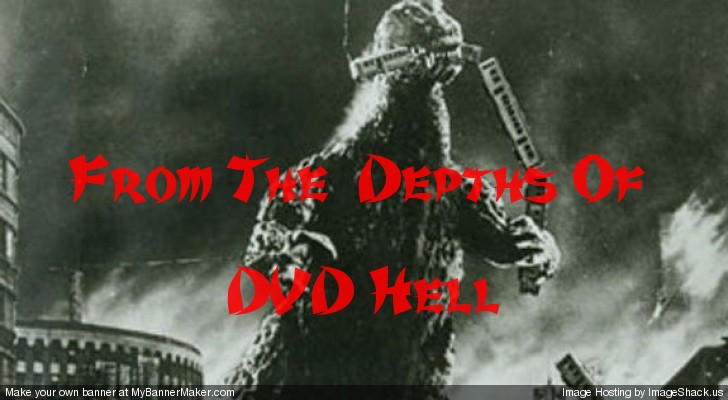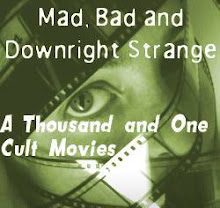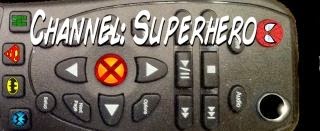Title: The Neighbour No. Thirteen
Director: Yasuo Inoue
Released: 2005
Director: Yasuo Inoue
Released: 2005
Staring: Nakamura Shido, Oguri Shun, Hirofuni Arai, Yumi Yoshimura, Tomoya Ishii, Minoru Matsumoto, Takashi Miike
Rating: 3 / 5
Rating: 3 / 5
Plot: Starting his new job at a construction site, Juzo (Oguri) is shocked to find that his foreman is Toru Akai (Arai), Juzo school bully, whose actions left him heavily traumatized. Juzo however has a dark secret, for when he is pushed to far he finds himself taken over, by his deranged alter ego #13 (Nakamura), who soon sets out to seek revenge against the former tormentor.
Review: This was a strange little film, seeing how it sets itself up like a horror film, but ends up being more of a study of the human psyche and how the surrounding environment, can shape a person, with the main idea of the bullied and traumatized Juzo, snapping mentally so severely that he has created a violent alter ego, to extract revenge on the man who made his life so miserable at school, as well as anyone unfortunate to upset him, while at the same time for myself especially, making me think largely of the same bullied teens, who bring firearms to school. Still in this world things are very much kept black and white with Akai still the same thuggish brute that he was, when he was at school with the only change he's made in the meantime, being the target of his violent whims, as he spends his time picking on the more timid members of his construction crew, which in a way makes it all the easier to symphonise with the timid and retiring Juzo, who has clearly been deeply affected by what he was forced to endure at the hands of Akai and his cronies, which in a way make his disfigured and grotesque alter ego #13 all the more effective, seeing how he is very much the complete polar opposite, as Juzo’s psycho Mr. Hyde.
Director Inoue, whose background is mainly in commercials and music videos, has clearly taken full advantage of the opportunity to expand his vision, in much the same way as his American counterparts David Fincher and Spike Jonze, took full advantage of a chance to break free of their formally restricted worlds, but rather than producing something overly artistic or stylised, like their feature debuts he has instead opted for a more sedate debut, preferring it would seem to showcase the foundations of his talent, while still at the same time finding time for the occasional burst of flamboyance, which he saves mainly for the dream sequences, which includes a Twin peaks style red room confrontation between the two sides of Juzo.
As I’ve covered already it is hard to refer to this film as horror film, even more so when the scenes of horror (a term best used lightly here), are shot with a feeling of detachment, rather than the usual voyeuristic glee while it’s Inoue’s interest in true crime, which also becomes apparent during these scenes, as they all feel grounded very much in realism, including a shocking attempted drowning of Toru’s son, using a bathroom sink. This style of shooting also extends to the flashbacks to the bullying with Juzo is forced to endure, which even with the most outlandish of these moments, with Juzo having acid thrown in his face, still have a shocking nature to them, which makes it all the more surprising that your not left rooting for Juzo, when as an adult he’s finally getting his revenge.
Despite having a psycho alter ego, director Inoue bides his time with unleashing the darker side of Juzo, slowly easing it out by having him first defile parts of Toru's home, by pissing on the bathroom floor and spitting toothpaste foam around the house, while building him up for the first kill which comes almost as a surprise when it does happen, thanks also to the victim not being the most obvious candidate, which can't be said for the majority of #13's other victims bar a couple of notable exceptions such as Toru's son. It is really only during the final school reunion confrontation between Juzo and Toru, that this soberness slips even at one point slipping into farce as Juzo chases Toru around a school desk, proving slightly unintentionally humorous and I was half expecting the Benny Hill theme to even kick in at one point, with #13 at one point, stabbing himself accidentally in the foot, which comes off almost slapstick rather than adding to any tension in the scene, even more so as it feels like the film has runs out of steam, as it draws towards the end as this final confrontation, which despite still managing to find a final couple of shocks, feels far too drawn out as #13 turns from being psychotic to a more playful sadist, verging on the torture porn that I find so tiresome, which could also explain why I found the ending dragging the way it does.
With this feature debut Inoue manages to establish himself as a future name to watch, while clearly wanting to distance himself from the shock tactics, endorsed by so many of the new wave of Asian film makers, none more so than within the horror genre, as the lines between actual horror and grotesque cinema continue to grow all the more blurred. Still there could be something said for the fact that he has the extreme cinema legend Takashi Miike, playing the noisy neighbour who, gets all to familiar with #13 as he becomes one of the early victims, almost as if Inoue is trying to drive home were his inspiration has been drawn from, aswell as a career he would no doubt like to imitate, especially when so many comparisons can be drawn between their styles, especially in respect to Miike's later films, which don't rely so much on the viseral and shocking nature of his earlier films, which made him such a notable film maker to begin with.
With this feature debut Inoue manages to establish himself as a future name to watch, while clearly wanting to distance himself from the shock tactics, endorsed by so many of the new wave of Asian film makers, none more so than within the horror genre, as the lines between actual horror and grotesque cinema continue to grow all the more blurred. Still there could be something said for the fact that he has the extreme cinema legend Takashi Miike, playing the noisy neighbour who, gets all to familiar with #13 as he becomes one of the early victims, almost as if Inoue is trying to drive home were his inspiration has been drawn from, aswell as a career he would no doubt like to imitate, especially when so many comparisons can be drawn between their styles, especially in respect to Miike's later films, which don't rely so much on the viseral and shocking nature of his earlier films, which made him such a notable film maker to begin with.
Despite the numerous great moments which are contained within this debut, it proves to be an interesting showcase for Inoue's talent, it lacks too much and feels slightly too bloated to warrant giving it more than a single watch, as it's doubtful you'll return to it past that initial viewing.









No comments:
Post a Comment